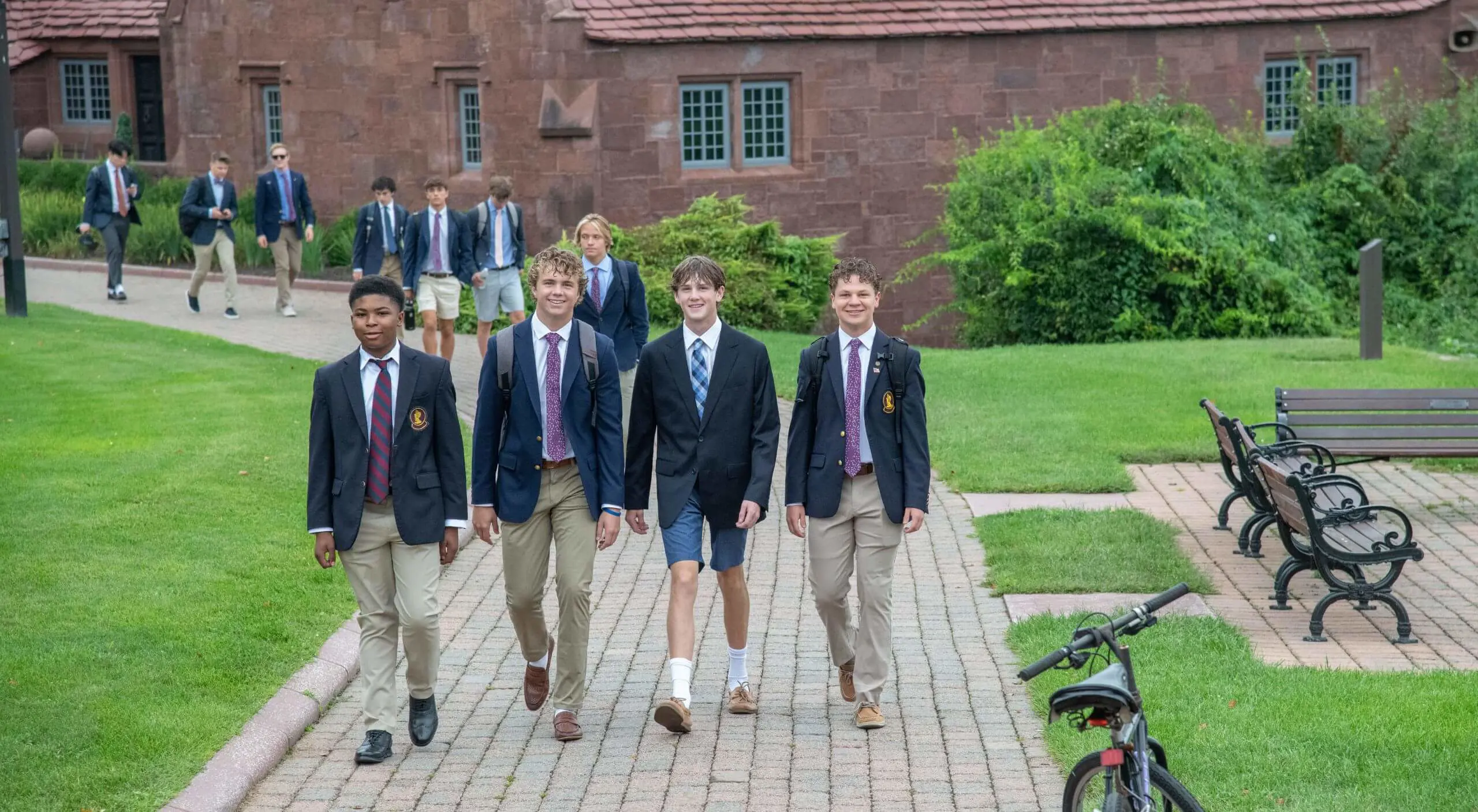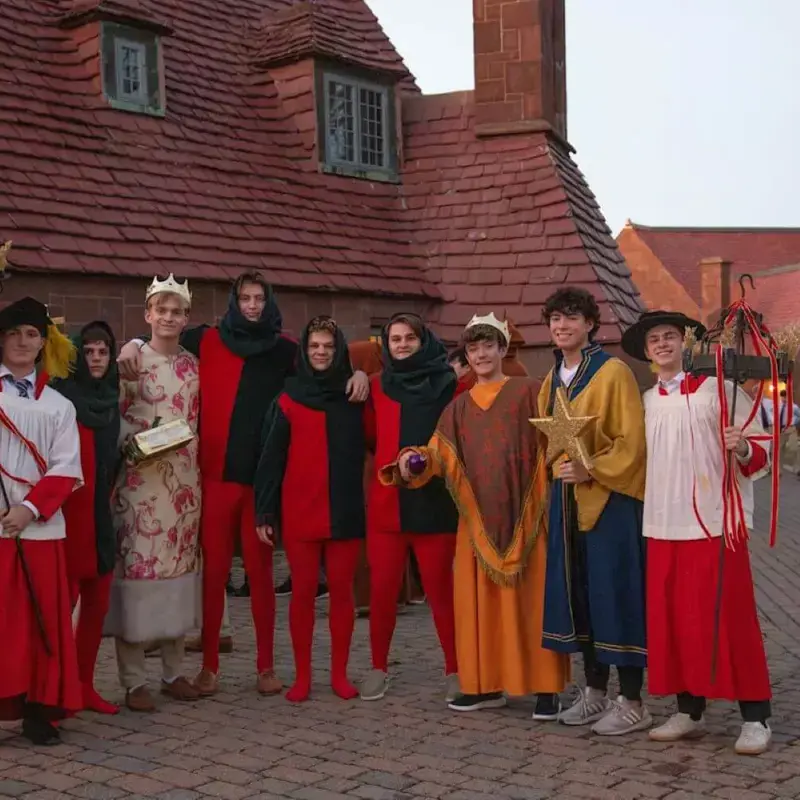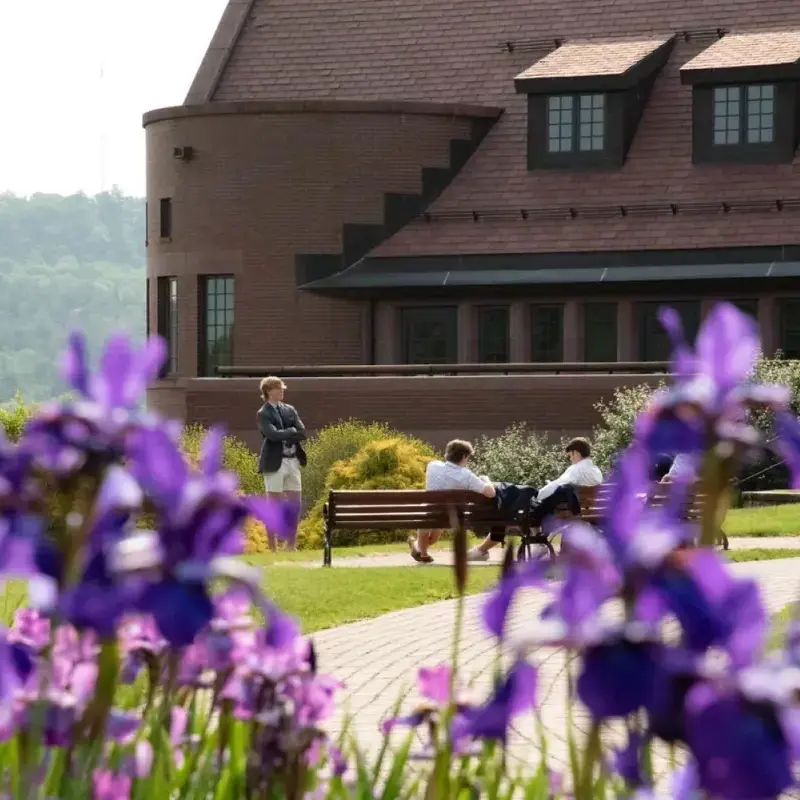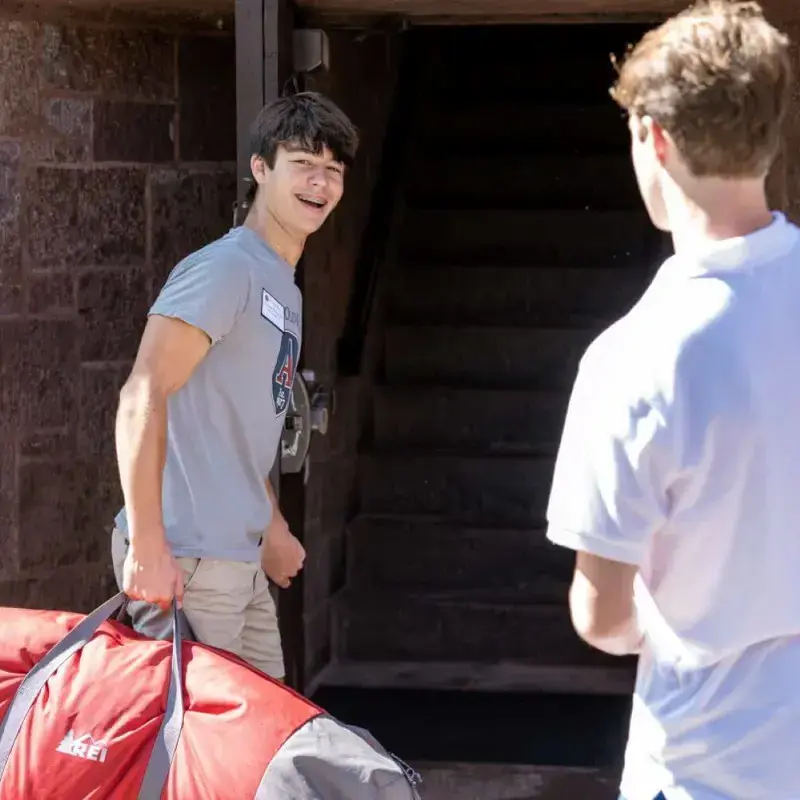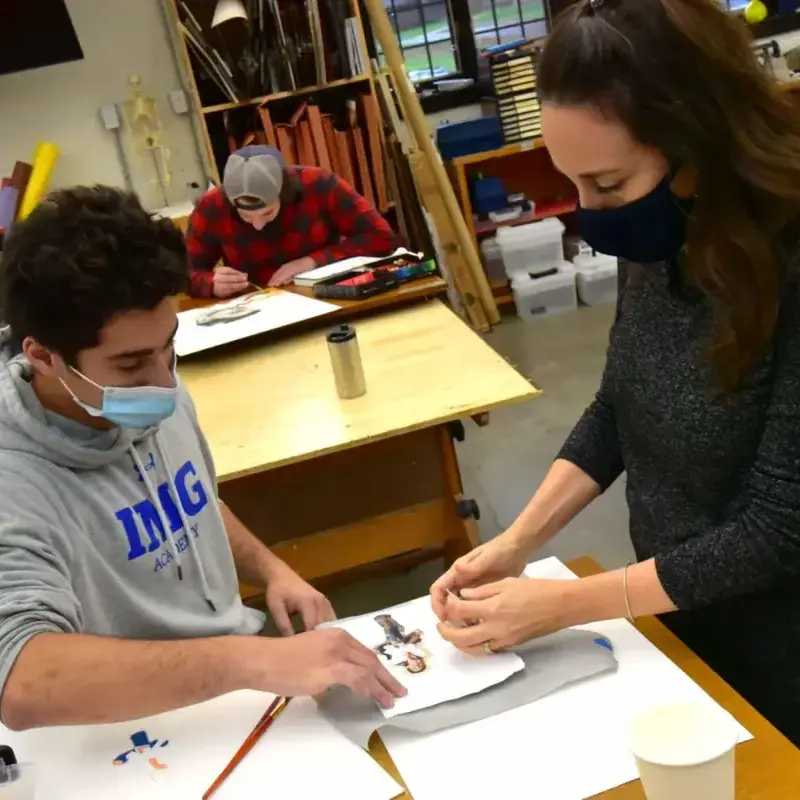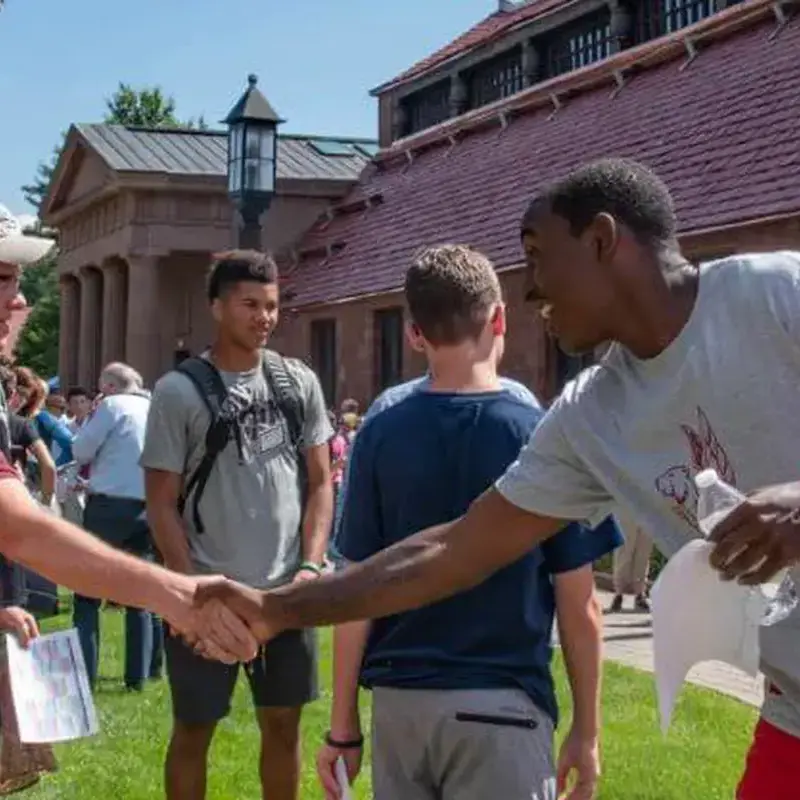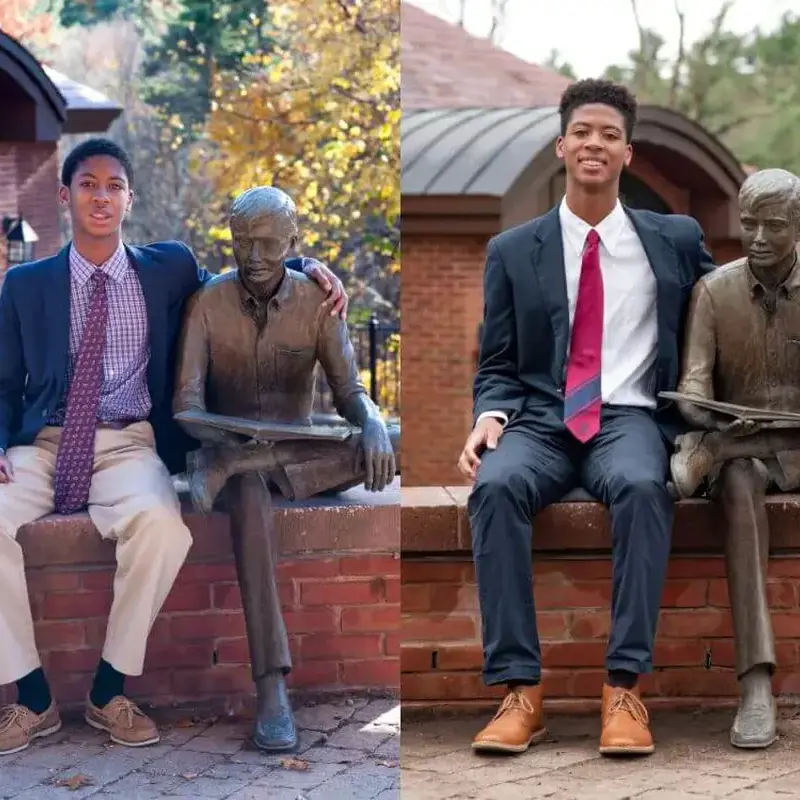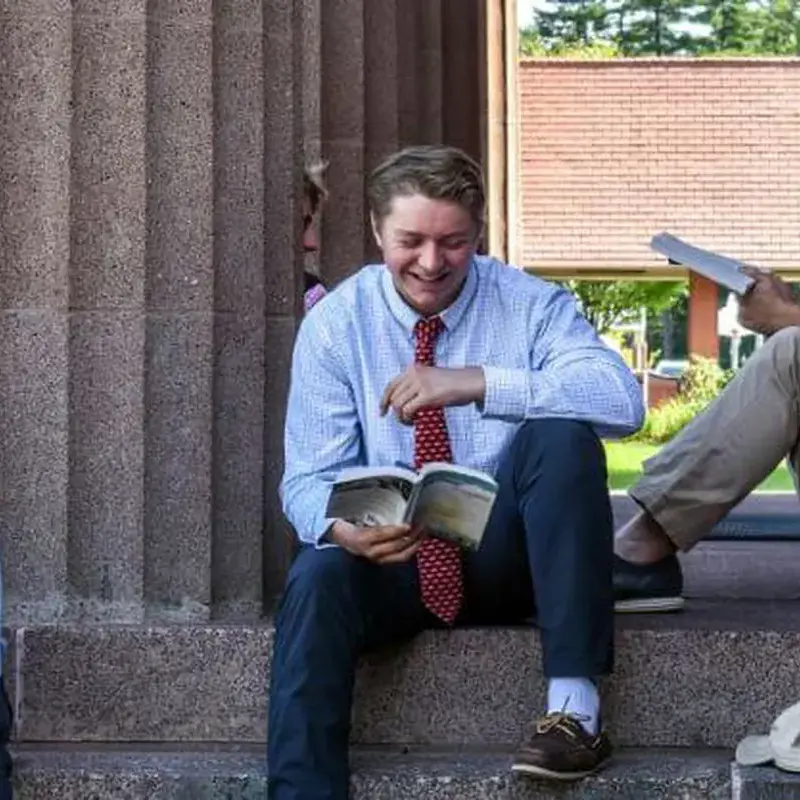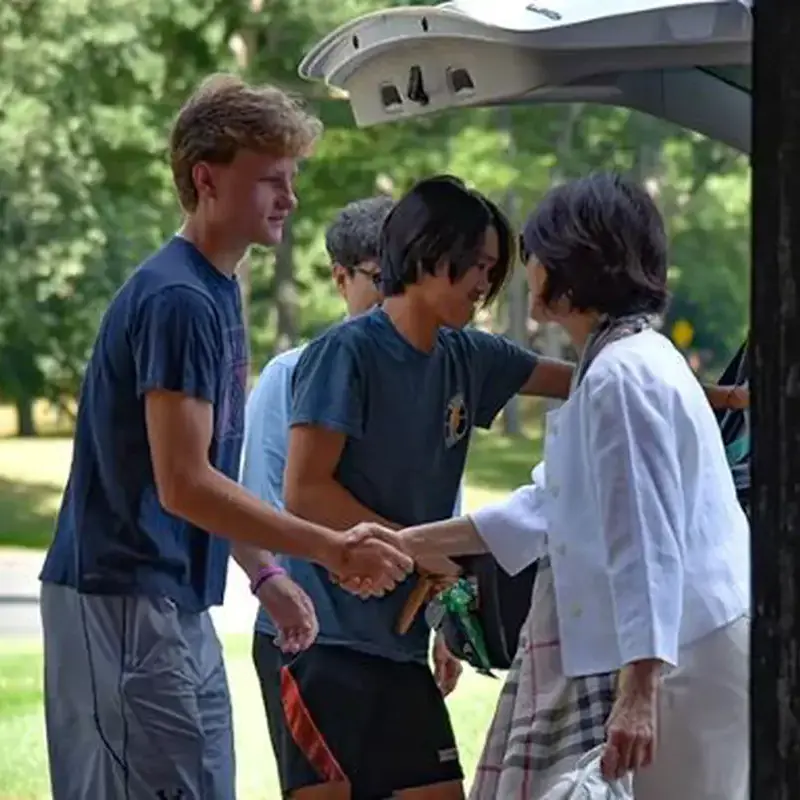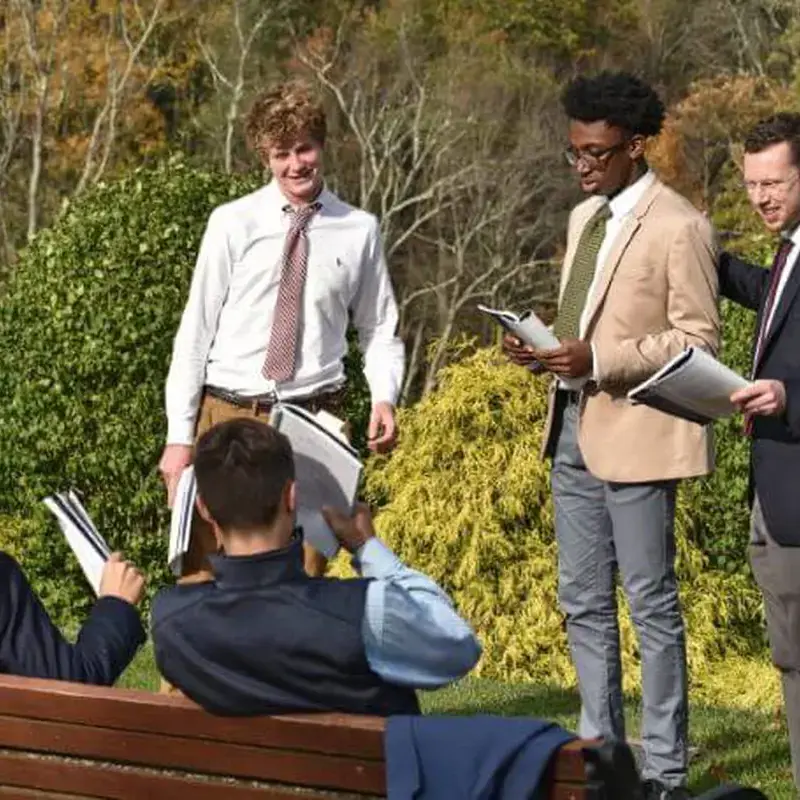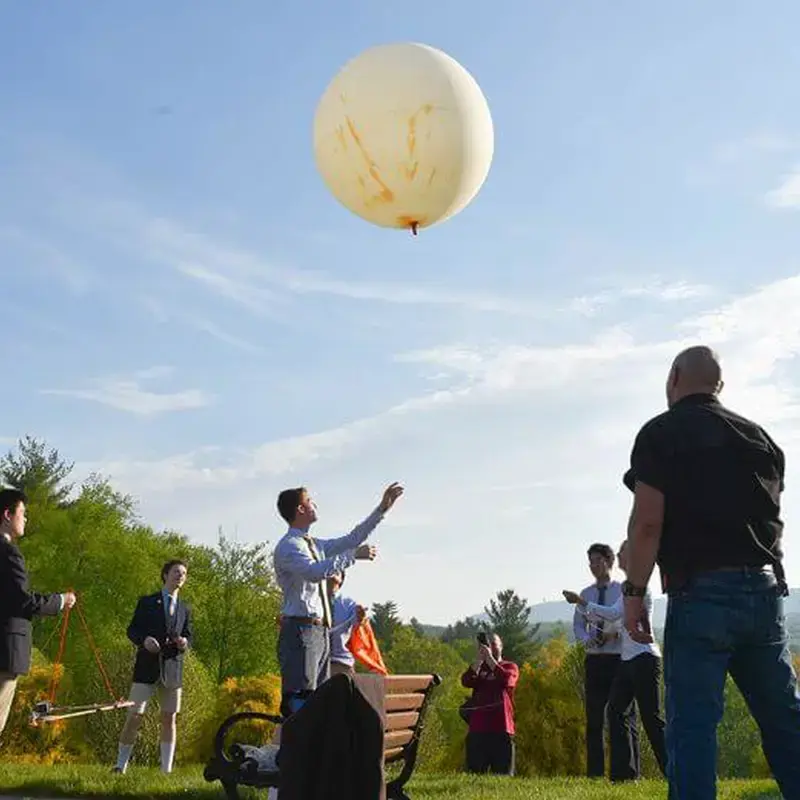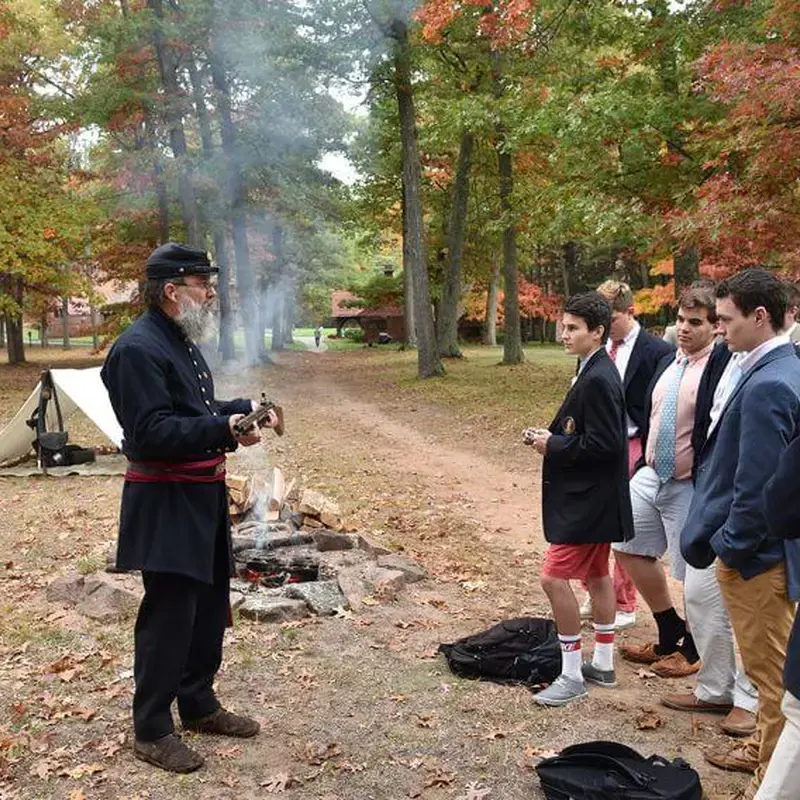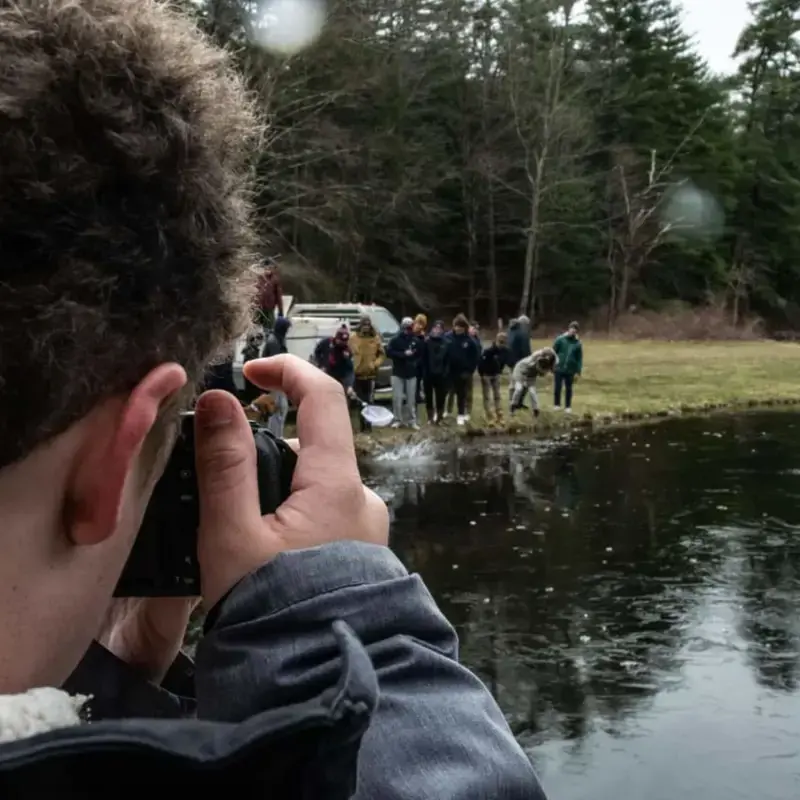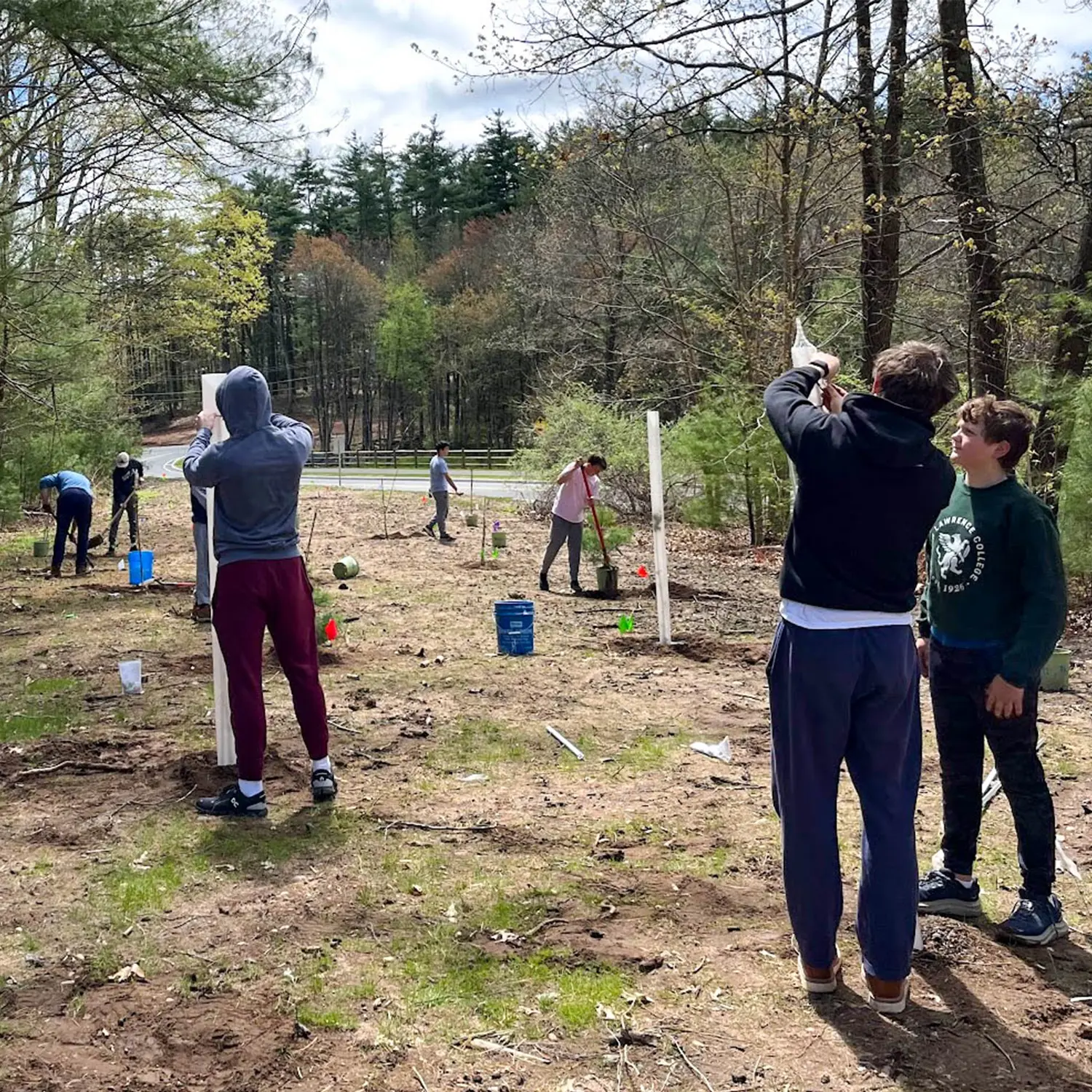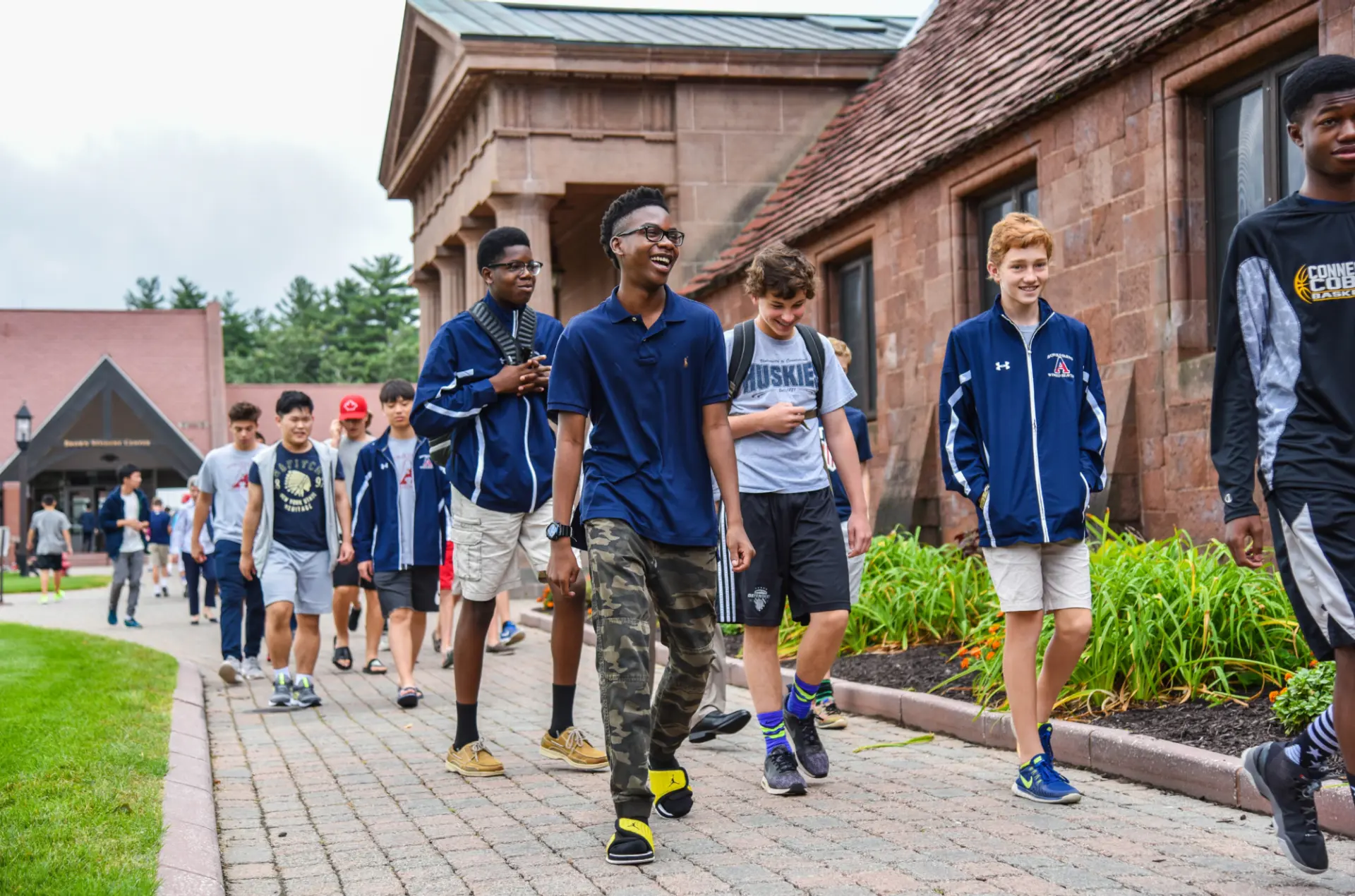The Boarding School Blog
|
|
Still wondering what life at Avon Old Farms is like? Explore our boys school blog below!
-
How having a positive mindset can help you bounce back from a bad grade
Student Peter Mok shares his experience of bouncing back after a tough math test
-
Why the Grass is Greener at Avon
Don't walk on the grass! One of Avon's most unique school rules and the valuable life lessons it can teach.
-
Avon's Most Beloved Holiday Tradition: A Student's Perspective
Student Ben Breslav defines the three pillars of the Boar's Head Festival to give insight into what makes this Avon tradition so special.
-
The Brotherhood In Bloom: Springtime On The Farm
There seems to be a consensus on campus that the spring season at Avon Old Farms is the favorite among students and faculty alike.
-
Artificial Intelligence on the Rise, What Does it Mean for Avon Old Farms?
Artificial Intelligence, or AI, has always been a source of fascination. It’s been the subject of countless sci-fi stories and was always viewed as something that would become commonplace at some point in the future.
-
Tips To Help First-year Students Settle In Quick At The Farm
The Avon Old Farms School community is a welcoming one, and we have plenty of tips for those just joining it.
-
Never Forget: AOF Remembrance of September 11th
On the anniversary of 9/11, we pledge again to never forget that day and those that were lost.
-
Helping Students Find (and Use) Their Moral Compass
At the founding of her school, Ms. Riddle wrote: The main purpose of Avon College is to develop in each boy a sound moral character.
-
Sharing What Happens in Our Art Studio; Our Oasis
The space is open, inviting, light. Come in on a weekend and students are in the darkroom or at the painting easel in the back studio. Others head to the digital lab, or photograph their teammates in the lighting studio for a project due Monday.
-
Sound Fundamentals: College Counseling at AOF
How the Pandemic Put an Emphasis on the Basics of College Admissions.
-
A Tradition in the English Classroom Has A Modern Touch
For decades, the Avon Old Farms School annual poetry contest has been a special experience shared with all brothers.
-
Quick Tips for First-time Boarding School Parents
Stories, know-how, and guidance from the experts in educating boys.
-
The Avon Village: How Our Founder Created A Place that Fosters Brotherhood
‘Mrs. Riddle’s Village’ was planned to support life as a self-sustaining community, and now, more than 90 years after it first opened, it has given life to something else: an eternal brotherhood of all who pass through our famed arches.
-
Four Life-Lessons Learned in Four Years
High school typically lasts four years; however, the lessons a boy takes away from the short time can extend out into his entire life.
-
Football: Life Lessons in Brotherhood, Integrity, and Sportsmanship
Autumn in the Farmington Valley is certainly a sight to behold, but there are few things more synonymous with the season than high school football.
-
Awakening to the Overlooked: Why Boys (and Men) Should Write
To understand why I write, I should first tell you about my favorite lesson to teach: we read two Charles Simic poems and play a game at guessing their titles.
-
Boarding School Monitors: Just What DO They Do Anyway?
‘Prefect,’ ‘Proctor,’ ‘Resident Assistant.’ These are all titles that boarding school students earn every year.
-
The Boy-Filled Classroom: What Teachers Notice and How They Respond
At Avon Old Farms, educators can celebrate the differences in students and recognize that they have a wide range of interests, abilities, and sensibilities.
-
The Private School Fair Pregame: How To Prepare Your Son For Maximum Impact
As the temperature drops and autumn approaches, so does a new admissions season.
-
Three Things First-Time Boarding School Students Need to Know
If this fall will be your first time going off to boarding school, I am sure you have faced several questions from friends and family over the past few weeks.
-
Redefining the "Three Rs" of Education
When I was in school, if asked what they “Three Rs” were, I would have rightly said they stood for “Reading, wRiting, and aRithmetic.”
-
Warning! Mind-blowing Artwork: What Happens When High School Boys Have Extra Time To Create
The Afternoon Independent Project Program is designed for students that show exceptional skill in a niche area such as photography, video, art, writing, or engineering.
-
Top 5 Reasons Why An All-Boys School Is The Way To Go
Here are five reasons why the all-boys community at Avon Old Farms is advantageous for teenage boys around the world.
-
Interview Tips: A Quick Guide to Radiating Confidence
Some worthwhile tips that families could utilize when they go through the secondary school interview process.
-
How to Rock Your Boarding School Essay
Tips on writing a standout essay for your private school application!
-
Exploring The Private School Option: 5 Steps To Finding The Right Fit For Your Child
What is the best fit for my child? Uncovering the answer to this question requires patience, diligence, and a plan of action.
-
Find the Best Space to Stretch Yourself: How to Navigate Your School's Club Fair
It’s a new school year, and that means spreading your wings and trying something different. The perfect place to begin is at your school student activities fair.
-
You're Off to Boarding School for the First Time! Shake Off the Jitters With This Advice
Things to keep in mind as you prepare for your first few days at a boarding school.
-
The Successful Boarding School Experience: 8 Steps to Developing Your Routine
We've crafted some steps you can start with to nail down healthy daily habits.
-
Is An All-Boys School The Right Answer For My Son?
To help our teachers better fulfill their commitment to each boy as he discovers his learning style, we have developed a teaching ideology built upon three specific pillars tailored to how boys learn.
-
Intersession: Through the Eyes of a Student
Intersession is all about teaching Avonians new skills that can be used in everyday life or give them a preview of a career they might want to pursue in the future.
-
How the AIP Program Leverages the Alumni Network to Give Young Avonians a Leg Up
Generations of Avonians dedicate time and energy to ensuring that the brothers following in their footsteps have a guiding hand to help them find their way into the future, and that the very best opportunities become available through our network.
Where Next?
|
|


